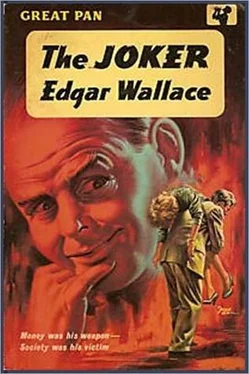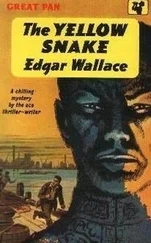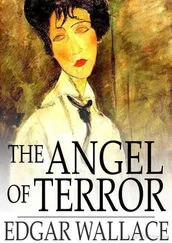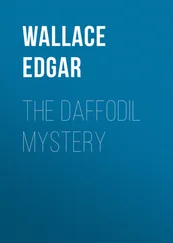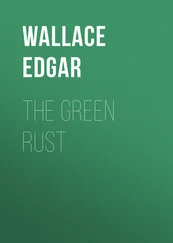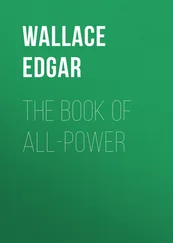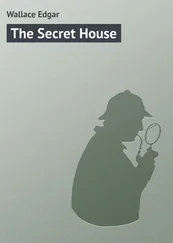Edgar Wallace - The Joker
Здесь есть возможность читать онлайн «Edgar Wallace - The Joker» весь текст электронной книги совершенно бесплатно (целиком полную версию без сокращений). В некоторых случаях можно слушать аудио, скачать через торрент в формате fb2 и присутствует краткое содержание. Год выпуска: 0101, Жанр: Старинная литература, на английском языке. Описание произведения, (предисловие) а так же отзывы посетителей доступны на портале библиотеки ЛибКат.
- Название:The Joker
- Автор:
- Жанр:
- Год:0101
- ISBN:нет данных
- Рейтинг книги:5 / 5. Голосов: 1
-
Избранное:Добавить в избранное
- Отзывы:
-
Ваша оценка:
- 100
- 1
- 2
- 3
- 4
- 5
The Joker: краткое содержание, описание и аннотация
Предлагаем к чтению аннотацию, описание, краткое содержание или предисловие (зависит от того, что написал сам автор книги «The Joker»). Если вы не нашли необходимую информацию о книге — напишите в комментариях, мы постараемся отыскать её.
The Joker — читать онлайн бесплатно полную книгу (весь текст) целиком
Ниже представлен текст книги, разбитый по страницам. Система сохранения места последней прочитанной страницы, позволяет с удобством читать онлайн бесплатно книгу «The Joker», без необходимости каждый раз заново искать на чём Вы остановились. Поставьте закладку, и сможете в любой момент перейти на страницу, на которой закончили чтение.
Интервал:
Закладка:
The inspector shook his head, puzzled. ‘I can’t understand where he got it from. The sergeant searched him carefully, but he must have had it concealed in some place.’
‘What is the matter with him?’ asked Jim, only half interested.
‘Dope,’ said the other. ‘When the jailer went and called him this morning it was as much as he could do to wake him up. In fact, he thought of sending for the divisional surgeon. You never saw a sicker-looking man in your life! Can’t get a word out of him. All he did was to sit on his bed with his head in his hands, moaning. We had to shake him to get him into the prison van.’
The first two cases were disposed of rapidly, and then a policeman called: ‘John Smith,’ and there tottered into court the black-faced comedian, a miserable object, so weak of knee that he had to be guided up the steps into the steel-railed dock. Gone was the exhilaration of the night before, and Jim had an unusual feeling of pity for the poor wretch in his absurd clothes and black, shining face.
The magistrate looked over his glasses.
‘Why wasn’t this man allowed to wash his face before he came before me?’ he asked.
‘Couldn’t get him to do anything, sir,’ said the jailer, ‘and we haven’t got the stuff to take off this make-up.’
The magistrate grumbled something, and the assaulted policeman stepped into the box and took his oath to tell the truth and nothing but the truth. He gave his stereotyped evidence and again the magistrate looked at the drooping figure in the dock.
‘What have you to say, Smith?’ he asked.
The man did not raise his head.
‘Is anything known about him? I notice that his address is not on the charge sheet.’
‘He refused his address, your Worship,’ said the inspector.
‘Remanded for inquiries!’
The jailer touched the prisoner’s arm and he looked up at him suddenly; stared wildly round the court, and then:
‘May I ask what I am doing here?’ he asked in a husky voice, and Jim’s jaw dropped.
For the black-faced man was Sir Joseph Layton!
CHAPTER 17
EVEN THE magistrate was startled, though he did not recognise the voice. He was about to give an order for the removal of the man when Jim pushed his way to his desk and whispered a few words.
‘Who?’ asked the magistrate. ‘Impossible!’
‘May I ask’—it was the prisoner speaking again—‘what is all this about—I really do not understand.’
And then he swayed and would have fallen, but the jailer caught him in his arms.
‘Take him out into my room.’ The magistrate was on his feet. ‘The court stands adjourned for ten minutes,’ he said; and disappeared behind the curtains into his office.
A few seconds later they brought in the limp figure of the prisoner and laid him on a sofa.
‘Are you sure? You must be mistaken, Mr Carlton!’
‘I am perfectly sure—even though his moustache has been shaved off,’ said Jim, looking into the face of the unconscious man. ‘This is Sir Joseph Layton, the Foreign Minister. I could not make a mistake. I know him so well.’
The magistrate peered closer.
‘I almost think you are right,’ he said, ‘but how on earth—’
He did not complete his sentence; and soon after he went out to carry on the business of the court. Jim had sent an officer to a neighbouring chemist for a pot of cold cream; and by the time the divisional surgeon arrived all doubt as to the identity of the black-faced man had been removed with his make-up. His white hair was stained, his moustache removed, and so far as they could see, not one stitch of his clothing bore any mark which would have identified him.
The doctor pulled up the sleeve and examined the forearm.
‘He has been doped very considerably,’ he said, pointing to a number of small punctures. ‘I don’t exactly know what drug was used, but there was hyoscine in it, I’ll swear.’
Leaving Sir Joseph to the care of the surgeon, Jim hurried out to the telephone and in a few minutes was in communication with the Prime Minister.
‘I’ll come along in a few minutes,’ said that astonished gentleman. ‘Be careful that nothing about this gets into the papers—will you please ask the magistrate, as a special favour to me, to make no reference in court?’
Fortunately, only one police-court reporter had been present, he had seen nothing that aroused his suspicion and his curiosity as to why the prisoner had been carried to the magistrate’s room was easily satisfied.
Sir Joseph was still unconscious when the Premier arrived. An ambulance had been summoned and was already in the little courtyard, and after a vain attempt to get him to speak, the Foreign Secretary was smuggled out into the yard, wrapped in a blanket and dispatched to a nursing home.
‘I confess I’m floored,’ said the Prime Minister in despair. A nigger minstrel…assaulting the police! It is incredible! You say you were at the police station when he was brought in; didn’t you recognise him then?’
‘No, sir,’ said Jim truthfully, ‘I was not greatly interested—he seemed just an ordinary drunk to me. But one thing I will swear; he was not under the influence of any drug when he was brought into the station. The inspector said he reeked of whisky, and he certainly found no difficulty in giving expression to his mind!’
The Premier threw out despairing hands.
‘It is beyond me; I cannot understand what has happened. The whole thing is monstrously incredible. I feel I must be dreaming.’
As soon as the Premier had gone, Jim drove to the nursing home to which the unfortunate Minister had been taken. The Evory Street inspector had gone with the ambulance, and had an astonishing story to tell.
‘What do you think we found in his pocket?’ he asked.
‘You can’t startle me,’ said Jim recklessly. ‘What was it—the Treaty of Versailles?’
The inspector opened his pocket-book and took out a small blank visiting card, blank, that is, except for a number of scratches, probably made by some blunt instrument, but the writer had attempted to get too much on so small a space, for Jim saw that it was writing when he examined the card carefully. Two words were decipherable, ‘Marling’ and ‘Harlow’ and these had been printed in capitals. He took a lead pencil, scraped the point upon the card, and sifted the fine dust over the scratches until they became more definite.
The writing was still indecipherable even with such an aid to legibility as the lead powder. Apparently the message had been written with a pin, for in two places the card was perforated.
‘The first word is “whosoever”,’ said Jim suddenly. ‘“Whosoever…please” is the fourth word and that seems to be underlined…’
He studied the card for a long time and then shook his head.
‘“Harlow” is clear and “Marling” is clear. What do you make of it, inspector?’
The officer took the card from his hand and examined it with a blank expression. ‘I don’t know anything about the writing or what it means,’ he said. ‘The thing I am trying to work out is how did that card come in his pocket—it was not there last night when the sergeant searched him—he takes his oath on it!’
CHAPTER 18
A BRIEF paragraph appeared in the morning newspapers.
‘Sir Joseph Layton, Secretary of State for Foreign Affairs, is seriously ill in a nursing home.’
It would take more than this simple paragraph to restore the markets of the world to the level they had been when the threat of war had sent them tumbling like a house of cards. The principal item of news remained this world panic, which the Foreign Secretary’s speech had initiated. A great economist computed that the depreciation in gilt-edged securities represented over Ł100,000,000 sterling and whilst the downward tendency at least to some stocks was recovering, a month or more must pass before the majority reached the pre-scare level. One newspaper, innocent of the suspicion under which the financier lay in certain quarters, interviewed Mr Harlow.
Читать дальшеИнтервал:
Закладка:
Похожие книги на «The Joker»
Представляем Вашему вниманию похожие книги на «The Joker» списком для выбора. Мы отобрали схожую по названию и смыслу литературу в надежде предоставить читателям больше вариантов отыскать новые, интересные, ещё непрочитанные произведения.
Обсуждение, отзывы о книге «The Joker» и просто собственные мнения читателей. Оставьте ваши комментарии, напишите, что Вы думаете о произведении, его смысле или главных героях. Укажите что конкретно понравилось, а что нет, и почему Вы так считаете.
